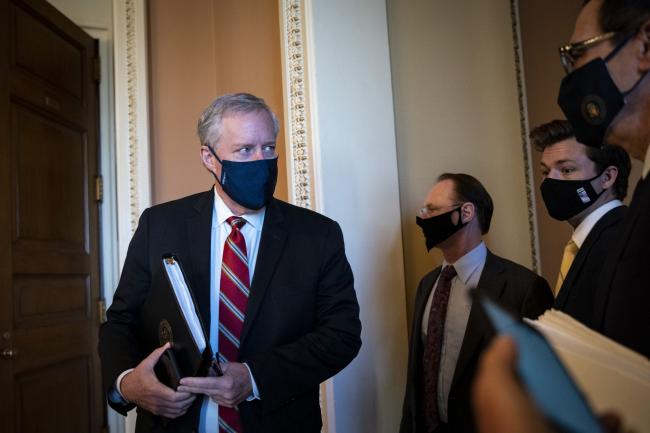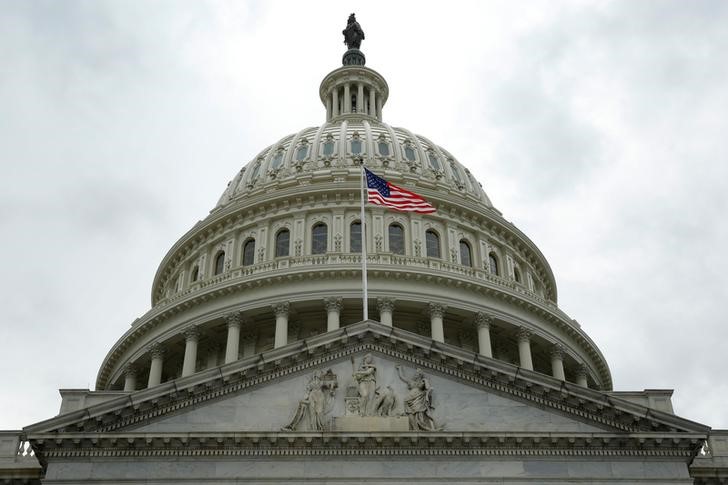(Bloomberg) -- Democrats and Republicans head into a fourth day of negotiations on a virus relief package with neither side showing signs they are willing to give on the biggest issues standing in the way of an agreement.
Instead, they accused each other of refusing to engage in serious negotiations.
“They basically won’t engage, period,” Senate Majority Leader Mitch McConnell said of Democrats Thursday.
Following him on the Senate floor, Democratic leader Chuck Schumer said Republicans “dithered for months and then produced a half-baked, half-hearted proposal of half-measures.”
Thursday’s talks come amid grim economic news. Gross domestic product shrank at an annualized pace of 32.9% in the second quarter, the steepest decline in records going back to 1947, the Commerce Department said. A separate report Thursday showed the number of Americans filing for unemployment benefits increased for a second straight week.
Meanwhile, the enhanced unemployment insurance for millions of out-of-work Americans that was part of a March stimulus package, along with protections from evictions, have run out.
Federal Reserve Chair Jerome Powell at a briefing on Wednesday warned of the most severe economic downturn “in our lifetime,” and urged Congress to supply further fiscal support to the economy as the Fed continues its measures on monetary policy.
Treasury Secretary Steven Mnuchin and White House Chief of Staff Mark Meadows were expected to return to the Capitol on Thursday for more talks as the clock winds down on key elements of the economic stimulus measure passed in March. The two sides have to bridge significant differences between the $1 trillion stimulus plan the GOP released Monday and the $3.5 trillion package House Democrats passed in May.
The three biggest roadblocks remained McConnell’s plan to shield employers against lawsuits stemming from Covid-19 infections, and Democrats’ drive to maintain $600-a-week supplemental unemployment payments and provide $1 trillion in aid to state and local governments.
There was growing pressure among Republicans for a stopgap bill to extend supplemental federal unemployment insurance and protections against eviction. President Donald Trump also weighed in favor of a temporary measure.
McConnell said Wednesday he was “looking at all options,” but Schumer and House Speaker Nancy Pelosi again rejected the idea.
Congress is scheduled to leave Washington for an August break at the end of next week, leaving little time to strike an agreement on broad stimulus legislation. Some lawmakers said they were open to delaying the break if it seemed like a deal was possible.
Senate Republicans were grappling with their own internal divisions over whether to continue pressing for a broad-based deal or something shorter term.
“There’s no consensus on anything,” Texas Senator John Cornyn said Wednesday after leaving lunch with his colleagues.
House Democratic Caucus Chairman Hakeem Jeffries said Democrats have some flexibility on the bill’s contents, but extending supplemental unemployment payments at $600 per week and providing $1 trillion for state and local governments are “critical.” He also said direct payments and housing assistance are highly important.
“It’s hard to say that we will compromise on one particular area of significance without seeing the entirety of the package,” Jeffries said.
©2020 Bloomberg L.P.

